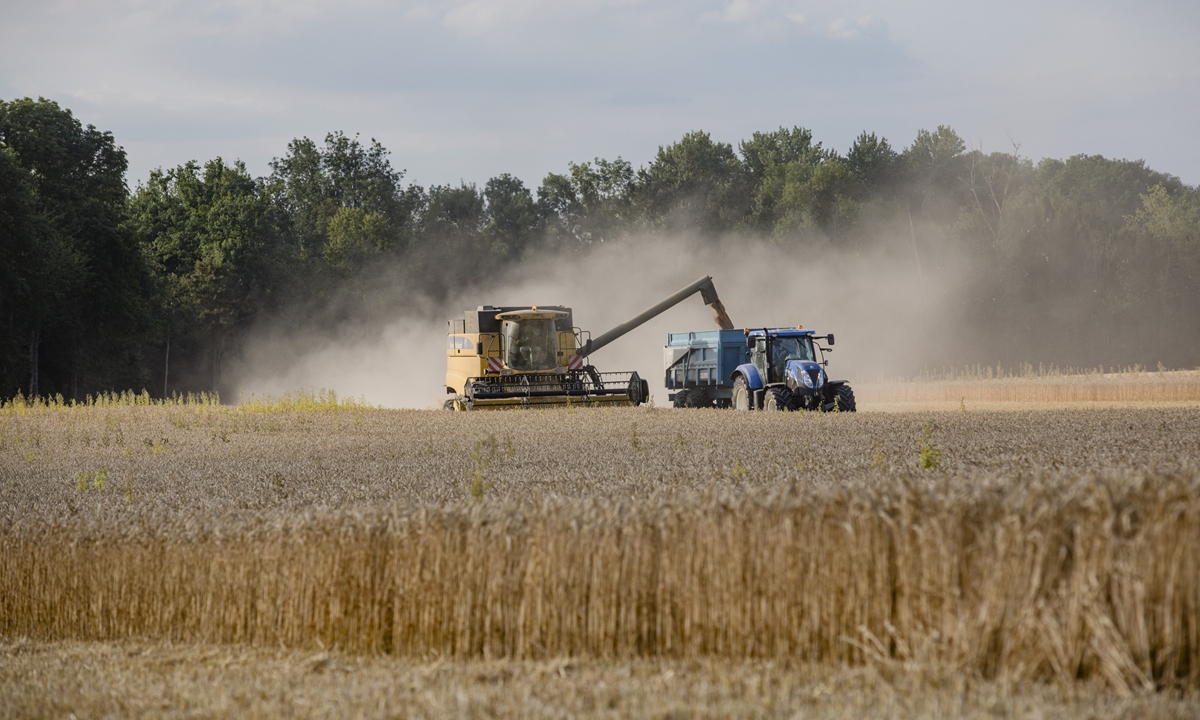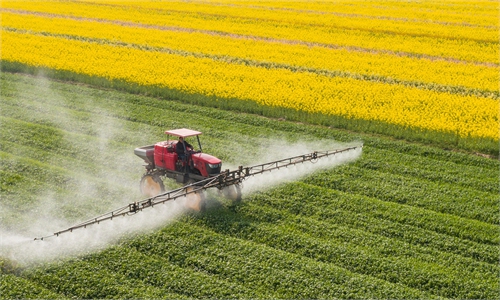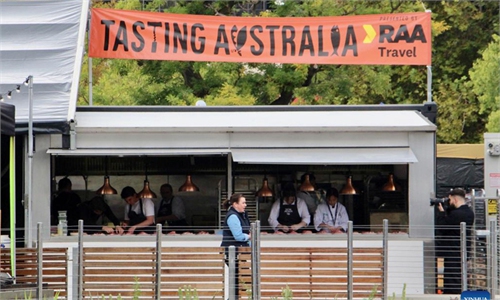
File Photo: VCG
After India banned wheat exports to guarantee domestic supply, the decision has stirred sharp criticism from agriculture ministers from the Group of Seven (G7) industrialized nations. German agriculture minister asserted if everyone starts to impose export restrictions or to close markets it "would worsen the crisis."
The military conflict between Russia and Ukraine, which together account for about 30 percent of global wheat exports, has sent shockwaves to the global market, posing a grave threat to global market food supply. Now, the agriculture ministers from G7 urge India not to ban wheat exports, then why won't G7 nations themselves move to stabilize food market supply by hiking their exports?
Clearly, G7's performance was lackluster. For instance, the US Department of Agriculture in April reduced its estimate for US exports of wheat for the year 2021-22 to 785 million bushels, the lowest level since 2015-16.
Although India is the second-largest wheat producer in the world, it accounts for only a small part of global wheat exports. By contrast, some developed economies, including the US, Canada, the EU and Australia, are among major exporters of wheat. If some Western countries decide to reduce wheat exports in the wake of a potential global food crisis, they will be in no position to criticize India, a country that faces huge pressure to secure its own food supply in order to feed its huge population.
The Ukraine crisis and particularly the West's sweeping economic sanctions imposed on Russia, are producing cascading negative effects across the global economy. This should be the real reason causing a steep rises in global market food prices and food supply shortages, which will likely push hundreds of millions of people back to poverty and lower nutrition.
Blaming India won't solve the food problem, although there is no denying that India's move to stop its wheat exports may push up wheat prices a little bit. The West just wants to shift the blame to the developing economies, including India.
In the wake of a looming food crisis, what should the developing economies do to ensure their food security? Firstly, each country needs to increase local food production and reduce reliance on imported grain.
As a major food consumer, China has also felt the pinch of growing food prices that remind us of the need to ramp up grain output. Since the beginning of April, the Chinese government has implemented a series of policies to ensure spring farming by clearing blockages in the distribution channel of agricultural materials and flow of personnel as the country combats its worst COVID-19 outbreak in two years.
And, developing countries need to strengthen their cooperation to tackle food shortage. For decades, the US and its allies have striven to preserve their global dominance and maintain an international order that best serves their own interests. As a result, the interests of the developing countries often take a back seat.
However, the developing countries now have a strong incentive to take firm action, because they always suffer more from a food crisis than the developed countries. The looming global food crisis has actually given China and some other developing countries the opportunity to strengthen cooperation to ensure their food security and protect their own interests.
Steered by the US, the existing global economic system give unjustified privileges to Western countries to purse their interests at the expense of many developing countries. Only by strengthening cooperation and partnership by themselves, can the developing economies change their disadvantaged position.
We don't know whether the looming food crisis will end up with the developing countries including India, China and other countries to play a bigger role in the global food supply chain. The G7 countries are welcome to join the efforts in tackling the global food crisis, but what is needed is concrete action, instead of criticism towards India and other developing countries.



